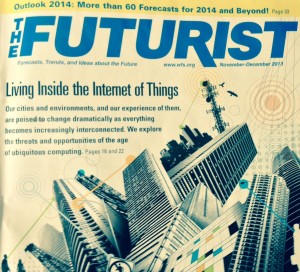I’ve had a few comments suggesting I haven’t been blogging much lately. When it comes to this blog and The Future Diaries I haven’t been prolific lately, but I’ve been pretty active on my SoLoMo Consulting blog.
So, if you’ve missed me, here are 10 things I’ve been writing about lately:
- Climate Change Refugees. This one on The Future Diaries where I was looking back from the future when all the expat Kiwis and anyone else that wanted a clean green, safe environment was hightailing it back to New Zealand. Interesting to see recent stats back up that notion with migration hitting a 9 year high with one of the biggest groups this year entering New Zealand was Kiwis who had been away for a long time. When fresh non-recycled water becomes a rare commodity, watch them all run to the bottom of the planet.
- Usage Based Insurance. I’ve mostly called it PAYD or Pay As You Drive. This story today is about insurance companies using Fleet Management data to determine risk and charge premiums based on how safe commercial drivers, particularly freight companies drive. Makes sense doesn’t it. Fleet Management would also give insurance companies advanced and near real time geographic risk profiles.
- Planning your Thanksgiving travel. The weekend is upon us and it seems ironic that we get together to be thankful, but the process makes it one of the most stressful weekends on the American calendar.
- I’ve blogged a lot about your mobile knowing where you are and what you’re up to. Now your mobile is starting to know what building you’re in and which floor you are on and retailers want to know.
- 19 car manufacturers have got together to ensure that you don’t stop buying their cars because they have embraced location based services. You want the features but you don’t want to give up your privacy. This is becoming a very hot topic.
- Take away all the traffic lights and intersection controls and you end up with safer streets. Really? Well it seems to be working in some places.
- Hacking Traffic Systems. I copped some flack from a traffic engineer over this, who said it is an old story and DOT’s are way to smart to risk being hacked. Phew, I am very relieved. No illegal green-waves here!
- A smart car ITS corridor in Europe. It makes sense to try it somewhere. Driver-less cars should be tested in a safe environment first IMHO.
- How big do you think Virgin Atlantic’s new Google Glass check-in service will be at your local airport? It may be a breeze, but I think there will be a lot of breeze between people who will use it.
- There is always a story about someone who crashes their vehicle and says the GPS nav made me do it. Here’s one about a truck driver who drove into a public park in Milwaukee and blamed his nav.
So as you can see, my fingers haven’t been idle. Hopefully there’s at least one story here to attract your interest and maybe a comment.













